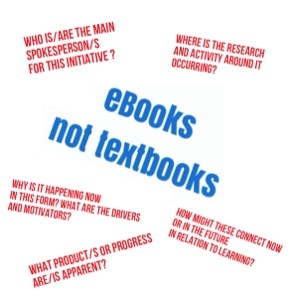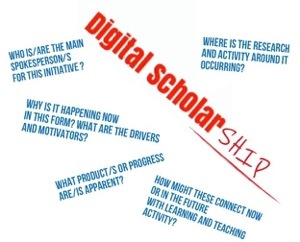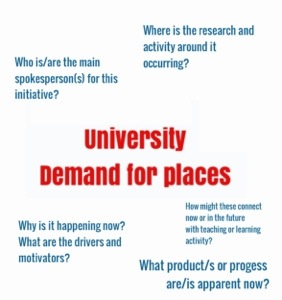
Fig.1. Applying learning on the First World War with e-learning - some Kindle reading.
I believe very much in the process of pulling apart, opening out, expanding, then editing, revising and condensing. There is an applied 'creation process' here - the three diamonds or Buffalo system that I sense H818 is taking us through.

Fig.2. The 'Buffalo' system of opening up, the compressing thinking
These days it is easy to grab and mash any content on a digital screen, but where I have a book I will, in some circumstances take pictures rather than write notes, then quickly bracket and annotate this text before filing it in an appropriate album online - for later consumption.
Regarding CC I'm afraid as the music and movie industries have already shown people will do as they please even where the copyright is bluntly stated. Academia will require and expect that everything is done by the book - the rest of the world won't give a monkey's ... 'we'll' do as we please until there's a legal shoot up or the 'industry' realises that it has moved on.
Regarding eBooks, Amazon are looking at and expect to be very much at the forefront of the evolutionary of the book. Google are competing in the same space.
'Have we reached the Napster moment in publishing?' a senior engineer at Amazon asked.
My head, content wise, is in another place, studying First World War military history. As never before on the MAODE or subsequent OU e-learning modules, I know have content to put into these processes. For example, 'the causes of the First World War' might require reading of a dozen books and papers/pamphlets starting with H G Wells in 1914 and ending with books appearing on tables in Waterstones this week. Courtesy of the Internet just about anything I care to read, at a price, I can have within seconds on a smart device ... or overnight courtesy of Amazon.
Whatever my practice, this content is mashed-up in my head.
If I mash it up through screen grabs, notes, sharing in social media and blogging then this is another expressing of what is going on in my head - though controlled by the parameters of the tools and platforms I use - currently a wordpress blog, SimpleMinds for mindmaps, and 'Studio' for layering text and images over screengrabs i.e annotations. As well as what ever Kindle gives me in the way of notes and highlights.
This kind of 'extra corporeal' engagement or visualization of what is going on in my head with the content gives it an life of its own and an extra dimension while also re-enforcing my own thoughts and knowledge. I'm sure that I am rattling along this learning curve at a far, far greater pace then I could have a decade or two decades ago. Patterns are more apparent. And I am spotting too many misappropriated images too. The idea that you can grab a frame and relabel it is 100 years old!

Fig.3. How I filmed the Front. Geoffrey Malins
For example, the footage from the 'Battle of the Somme' is often 'grabbed' with subsequent combatants and authors claiming these to be original photographs of their own - they must have had access to the negative. This footage, as I am very familiar with it, is repeatedly put into films and documentaries completely out of sequence.
As reference above is correct - I find 'grabs' from the film footage and photographs taken by Ernest Brooks who accompanies the 'cameramen' around the Somme in June/July 1916 constantly claimed as another person's own photograph or belonging to their collection.
A false or alternative impression is therefore built up.
Then, across YouTube, sections of TV dramas and films are snatched and cut into a person's own re-hashing of a different story. Harry Patch died age 111 or something - the last veteran. A tribute to him uses footage from the TV drama staring Daniel Radcliffe called 'My Boy, George".
Are we therefore seeing with text, stills and moving images what has been happening to music for the last decade or more - deliberate, and often illegal sampling and mashing, rehashing, exploiting of someone else's work? If so what impact will this have on content in the future? Does too much of it start to look familiar, rather than original? Or does originality come out of this process too?
The conclusion might be that people simple sidestep the stilted, stuck, formal process of academia - where the sharing process is so desperately slow. The paper I read on use of audio and tracking in a museum I thought was reasonably current as it was published in 2008 but the technology used comes from a different era - 2003. Research done in 2006, initially submitted as a paper in 2007, published the following year.
An R&R department functioning like this would be left behind.
Knowledge must leak, must be shared sooner, and where those share a work in progress it should be commended.







